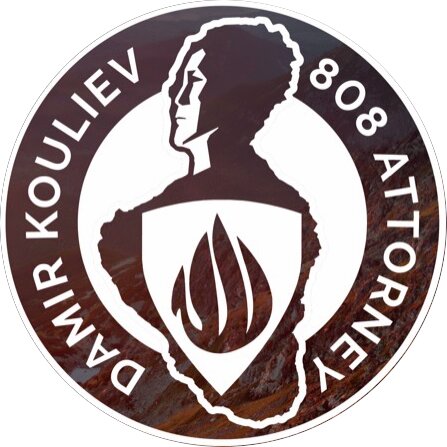Best Adoption Lawyers in Hawaii
Share your needs with us, get contacted by law firms.
Free. Takes 2 min.
Free Guide to Hiring a Family Lawyer
Or refine your search by selecting a city:
List of the best lawyers in Hawaii, United States
About Adoption Law in Hawaii, United States
Adoption in Hawaii is the legal process by which an individual or a couple becomes the legal parent or parents of a child who is not their biological offspring. After an adoption is finalized, the adoptive parents assume all legal rights and responsibilities for the child, and the legal relationship between the child and their biological parents is terminated (except in the case of stepparent adoption, where one biological parent may retain parental rights). Adoption can involve children from the state foster care system, private adoption agencies, stepparent adoptions, family adoptions, or international adoptions. Each type has its own specific requirements and processes governed by state and sometimes federal law.
Why You May Need a Lawyer
There are several situations where legal help in adoption cases can be essential:
- You are unsure about the legal requirements or procedures involved in adopting a child in Hawaii.
- There is a complicated family situation, such as disputes about parental rights, unknown parental whereabouts, or unique concerns around the child’s background.
- You are considering a stepparent, relative, international, or adult adoption.
- Consent from one or both biological parents is unavailable or contested.
- Paperwork, court appearances, or home study requirements seem overwhelming or confusing.
- You want to ensure your rights and the child’s best interests are protected throughout the process.
- You need help communicating with adoption agencies or governmental bodies.
Local Laws Overview
Hawaii’s adoption laws are outlined in the Hawaii Revised Statutes (Chapter 578). Key aspects include:
- Eligibility: Any adult may petition to adopt. Married couples must generally petition together unless one spouse is the child’s legal parent.
- Consent Requirements: The consent of both birth parents is normally required, unless parental rights have been terminated, a parent has abandoned the child, or court-ordered exceptions are met.
- Home Study: Most adoptions require a home study evaluating the adoptive parents’ suitability and the child’s needs.
- Types of Adoption: Hawaii recognizes private, public agency, stepparent, relative, and international adoptions.
- Finalization: After the legal process and a post-placement period, the court will hold a hearing and may issue a final adoption decree, granting full parental rights to the adoptive parent or parents.
- Sealed Records: Adoption records are typically sealed for privacy, though provisions exist for adult adoptees to obtain certain information under specific circumstances.
- Native Hawaiian Considerations: Special cultural and legal protections exist for children of Native Hawaiian ancestry, and extra care may be taken to maintain cultural connections.
Frequently Asked Questions
What types of adoption are available in Hawaii?
Hawaii allows private adoptions, public agency (foster care) adoptions, stepparent and relative adoptions, and international adoptions. Each follows specific procedures and requirements.
Who can adopt a child in Hawaii?
Any responsible adult, including single individuals or married couples, can adopt. Married couples must usually file together unless one spouse is already the legal parent.
Do both biological parents have to consent to the adoption?
Generally, yes. However, consent may not be required if a parent’s rights have already been terminated, the parent has abandoned the child, or the court finds a valid legal exception.
How long does the adoption process take?
The process varies from case to case, but most adoptions can take several months and may involve home studies, court hearings, and other procedural requirements.
Is a home study always required?
Most adoptions require a home study to ensure the safety and suitability of the adoptive home. Some stepparent or relative adoptions may qualify for home study waivers.
How much does adoption cost in Hawaii?
Costs vary widely. Private adoptions may involve agency and legal fees, while foster care adoptions are often low cost or free. Stepparent or relative adoptions typically involve court and legal fees. Costs can range from a few hundred dollars to several thousand dollars.
Can adoption records be accessed later?
Adoption records are generally sealed, but adult adoptees may request certain non-identifying information and, in some cases, identifying information with consent from all parties.
Can LGBTQ+ individuals or couples adopt in Hawaii?
Yes. Sexual orientation is not a barrier to adoption in Hawaii. All qualified adults or couples can petition to adopt, regardless of sexual orientation or gender identity.
What happens to the child’s original birth certificate?
After adoption is finalized, a new birth certificate is issued listing the adoptive parents as the child’s legal parents. The original birth certificate is typically sealed.
What are the rights of Native Hawaiian children in adoption?
Special considerations are given to maintaining a child’s connection to their Native Hawaiian culture and heritage, and preferences may be given to Native Hawaiian families in placement decisions when possible.
Additional Resources
Several organizations and governmental bodies offer assistance, support, or information for those involved in adoption in Hawaii:
- Hawaii Department of Human Services - Child Welfare Services: Handles public agency adoptions and provides support for foster care and adoption processes.
- Family Courts of the State of Hawaii: Oversees legal proceedings related to adoption and parental rights.
- Private Adoption Agencies: Many licensed agencies operate in Hawaii and can guide prospective parents through the process.
- Hawaii State Bar Association: Offers referrals for qualified family law and adoption attorneys.
- American Academy of Adoption Attorneys: National network of experienced adoption lawyers, some of whom practice in Hawaii.
- Adoptive Families Support Groups: Various local and statewide organizations offer emotional support and practical guidance.
Next Steps
If you are considering adoption in Hawaii, start by clarifying what type of adoption is appropriate for your situation. Consider contacting a qualified adoption attorney to discuss your case, especially if you face complicated circumstances or uncertainty about the process. Review information from the Hawaii Department of Human Services and local courts, and, if possible, attend informational sessions or consult with adoption agencies for guidance. Document your questions, gather necessary information such as personal identification and any relevant records, and be prepared for interviews, home studies, and legal submissions. Seeking legal assistance early in the process can save time, prevent errors, and ensure your rights and the best interests of the child are protected at every stage.
Lawzana helps you find the best lawyers and law firms in Hawaii through a curated and pre-screened list of qualified legal professionals. Our platform offers rankings and detailed profiles of attorneys and law firms, allowing you to compare based on practice areas, including Adoption, experience, and client feedback.
Each profile includes a description of the firm's areas of practice, client reviews, team members and partners, year of establishment, spoken languages, office locations, contact information, social media presence, and any published articles or resources. Most firms on our platform speak English and are experienced in both local and international legal matters.
Get a quote from top-rated law firms in Hawaii, United States — quickly, securely, and without unnecessary hassle.
Disclaimer:
The information provided on this page is for general informational purposes only and does not constitute legal advice. While we strive to ensure the accuracy and relevance of the content, legal information may change over time, and interpretations of the law can vary. You should always consult with a qualified legal professional for advice specific to your situation.
We disclaim all liability for actions taken or not taken based on the content of this page. If you believe any information is incorrect or outdated, please contact us, and we will review and update it where appropriate.
Browse adoption law firms by city in Hawaii
Refine your search by selecting a city.










